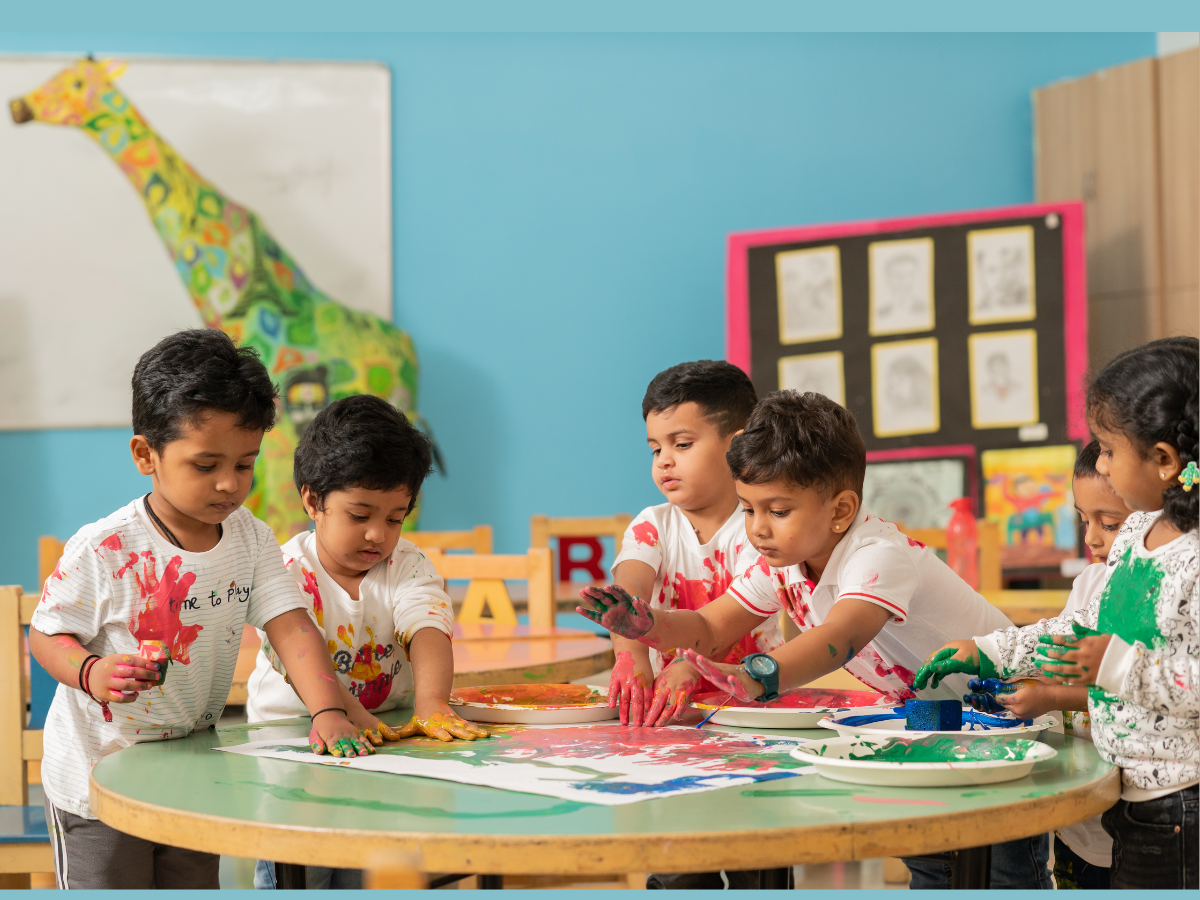I can say: Communication Skills in IB Early Years Programme
- 5 February 2024


Child 1: May I Share this toy?
Child 2: Yes, take it.
Child 1: I want clay.
Teacher: Here, use it and put it back in its place.
Child 1: Sorry!! Are you ok?
Child 2: No problem!
Have you heard a 3-year-old communicate this way? If you did, it means you have given them a stimulating environment to develop communication skills. I have heard such conversations in our Oakridge nursery classroom, such conversations are conscious consistent introductions in our early year’s classroom.
In my 10-year teaching experience, I have observed that tantrums in early years are mostly due to gaps in communication/ conversational skills. Age-appropriate communication stimuli help children communicate their needs in words or simple sentences. Most of the strategies employed in EYP classrooms help to convert non-verbal cues into communicating through words. It is our responsibility to introduce words and choices of words to our young ones.
Give 3 to 5 year-old the respect they deserve and focus on what they are saying, not necessarily on whether they are saying correct sounds in their words. Repeat what they say, so they know you heard them. Foster the amazing ideas they have and ensure they feel confident and secure.
Children of 3-5 years discover how others interpret the world. They also notice other people’s feelings and emotions and they often start to empathize and learn cooperation skills like turn taking and sharing. Instead of crying, whining, or making a noise when they want something, children start to communicate more with their peers with words and phrases. What a relief, right?
It’s also important to reinforce to our 3–5-year-olds, how they can use their words to communicate with a peer to eliminate whining or crying behaviours. You can get down to their level and help support them using their words to communicate with their friends about what they want and need. This type of modelling sets the children up for success as they are newly managing these social behaviours.
Here are some effective techniques employed in Oakridge International School Bengaluru Early Years Classrooms that will also help in developing your child’s language and communication skills.
Achsah Havilah
Learning Support Facilitator

Hyderabad, Gachibowli

Hyderabad, Bachupally

Visakhapatnam

Mohali
Bengaluru